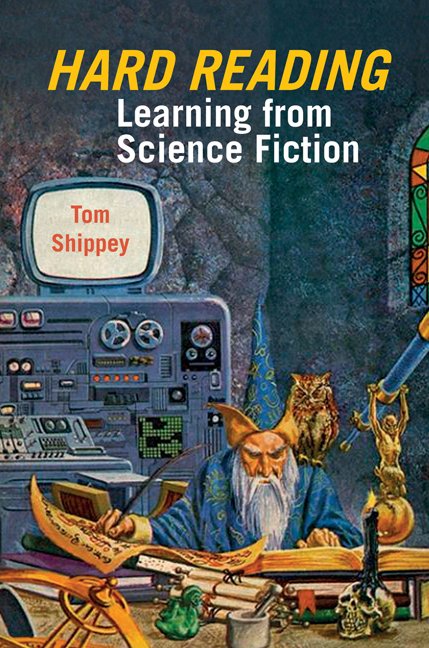Book contents
- Frontmatter
- Dedication
- Contents
- List of Figures
- Note on References
- A Personal Preface
- What SF Is
- SF and Change
- 4 Getting Serious with the Fans
- 5 Getting to Grips with the Issue of Cultures …
- 6 … And Not Fudging the Issue!
- 7 SF Authors Really Mean what they Say
- 8 A Revealing Failure by the Critics
- 9 A Glimpse of Structuralist Possibility
- 10 Serious Issues, Serious Traumas, Emotional Depth
- SF and Politics
- References
- Index
5 - Getting to Grips with the Issue of Cultures …
from SF and Change
- Frontmatter
- Dedication
- Contents
- List of Figures
- Note on References
- A Personal Preface
- What SF Is
- SF and Change
- 4 Getting Serious with the Fans
- 5 Getting to Grips with the Issue of Cultures …
- 6 … And Not Fudging the Issue!
- 7 SF Authors Really Mean what they Say
- 8 A Revealing Failure by the Critics
- 9 A Glimpse of Structuralist Possibility
- 10 Serious Issues, Serious Traumas, Emotional Depth
- SF and Politics
- References
- Index
Summary
This is a heavily revised version of the first extended piece I ever wrote about science fiction (I had been writing reviews in Peter Weston's fanzine Speculation for some time). It came out in 1969 in the Birmingham University journal Alta, of which I was at the time assistant editor. Alta was a really good idea: expensively produced (this piece came out with half a dozen book covers as illustrations) and full of interesting material relating to the university. As assistant editor I had to do some ‘science writing’, i.e., making things like developments in electron microscopy understandable to non-specialists. I remember also republishing two pieces by a strange figure on the fringes of ‘literary theory’, though it wasn't called that yet. One of the major Russian literary theorists was Mikhail Bakhtin; Mikhail – writing from Communist Russia – had a brother called Nikolai. In 1917, Nikolai was a middle-class soldier in a hussar regiment, and when the Revolution broke out it seems that some of the Bolsheviks were rude to him. He accordingly joined the White Guards, and fought for years in the terrible Russian civil war of which one sees flashes in Dr Zhivago. In the end, he had to flee, joined the French Foreign Legion, rose to be an adjutant or sergeant-major, fought the Rifs in Algeria, got shot and was invalided out with the Croix de Guerre. After which, by a natural career progression (?), he became Professor of Linguistics at Birmingham University. One could hardly find a more striking example than these two brothers of Mikhail's concept of ‘dialogism’, which becomes a theme in what follows here. Nikolai's accounts of the Revolution and the Foreign Legion had appeared in a little pamphlet, now very rare – there is a Nikolai Bakhtin Archive in the university library at Birmingham – and we republished them in Alta. The university authorities, however, did not like Alta very much, and it was soon closed down as too expensive.
Since this piece was not on disk, and I only had one file copy, I forgot about it for many years. Rereading it many years later, I was struck with horror and surprise. The horror was at how naive I had been, not to mention plain ignorant.
- Type
- Chapter
- Information
- Hard Reading: Learning from Science Fiction , pp. 85 - 102Publisher: Liverpool University PressPrint publication year: 2016



